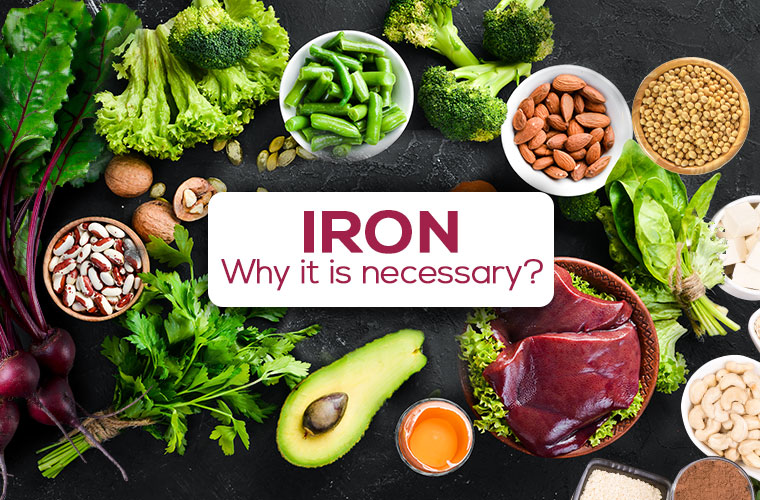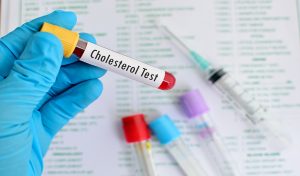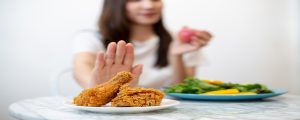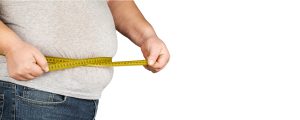Have you been feeling exhausted lately? Are you finding it difficult to catch a breath while climbing a flight of stairs? If so, you might be deficient in Iron.
Iron is an essential mineral for our body. We need Iron for the transport of oxygen throughout the body. Iron is an important component of hemoglobin, a part of red blood cells that helps carry oxygen from lungs to all parts of the body. More than 60% of our body’s Iron is contained in hemoglobin.
Iron also plays a key role in metabolism. Certain enzymes required for digestion of food use Iron as a cofactor, essential for activation of the enzyme, for oxidative metabolism which converts carbohydrates to energy in the form of ATP (energy currency of our body).
Iron plays an important role in immunity. Iron helps in cell proliferation and maturation particularly lymphocytes, commonly known as white blood cells. Lymphocytes are the body’s main immune cells and the first line of defense.
Unfortunately, we are unable to get enough Iron from our diets alone. The deficiency of Iron inhibits the production of oxygen carrying red blood cells. This is called Iron deficiency anemia. According to the National Family Health Survey, 53% of Indian women and 23% of Indian men are suffering from anemia due to deficiency of Iron [1].
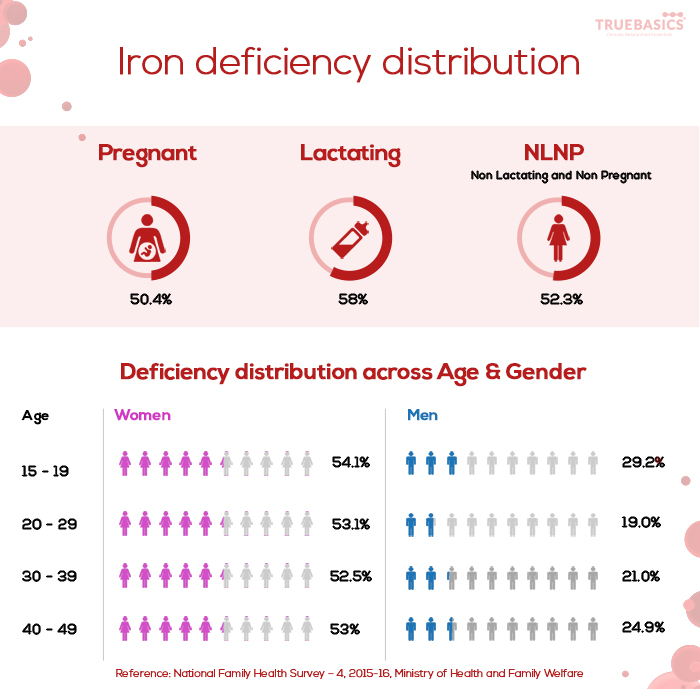
Reasons for Iron Deficiency:
1. Inadequate Dietary Intake of Iron
The most common reason for Iron deficiency anemia is the absence or lack of Iron in our diet. While our body is good at retaining body Iron, we must still replenish the Iron lost through blood loss, skin or medical conditions [2].
2. Malabsorption
Certain medical conditions and gastrointestinal disorders such as celiac disease, Crohn’s disease prevent the body from absorbing Iron through normal routes. Continuous intake of antacids, aspirin, and non-steroidal anti-inflammatory drugs prevent the body from absorbing Iron. This can create a net Iron deficiency in the body.
3. Menstruation
Women are more prone to Iron deficiency anemia due to blood loss during menstruation. Iron is lost from the body during blood loss which can create a net deficiency.
4. Pregnancy
During pregnancy, the body’s requirement of Iron increases drastically to support the growth of fetus. This creates a net Iron deficiency in the body.
5. Loss due to medical conditions
Kidney failure and blood loss due to ulcers can also remove Iron from the body.
Symptoms of Iron Deficiency:
- Extreme fatigue & tiredness
- Paleness in skin
- Shortness of breath
- Headaches and Dizziness
- Soreness in the mouth
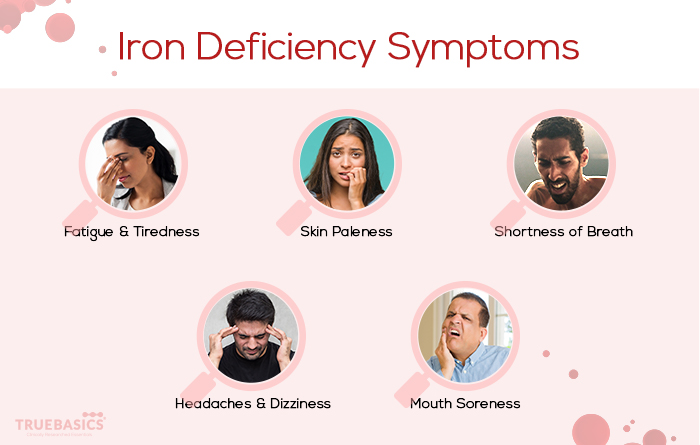
How to combat Iron Deficiency:
The recommended daily intake for Iron is 17 mg/day for men and 21 mg/day for women. During pregnancy, the Iron requirement goes up to 35 mg/day.
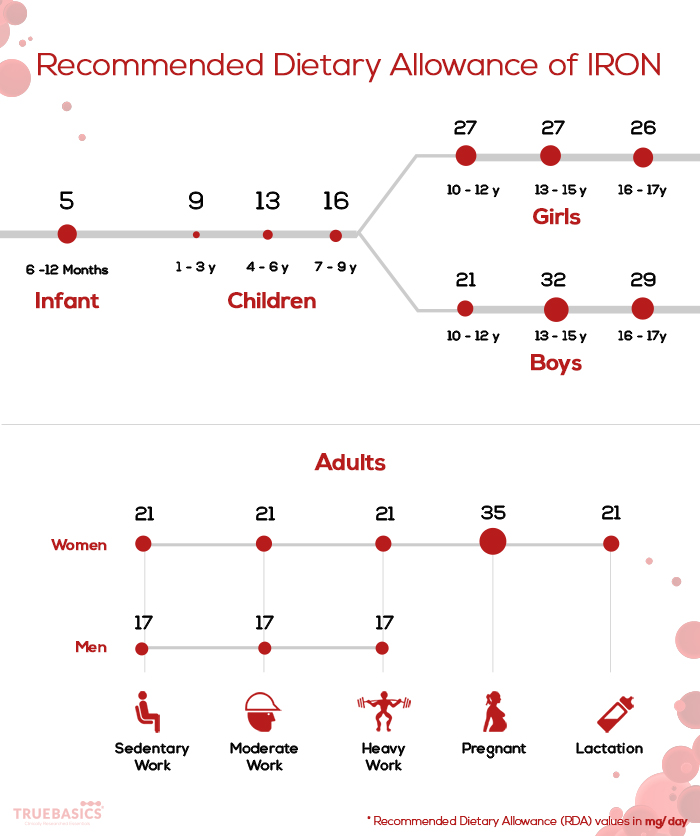
Below are the 10 food sources that you can include in your diet to meet your daily Iron requirement [3,4] –
- Legumes
Legumes like chickpeas (chana), red kidney bean (rajma) and soybeans are rich in Iron, folate and vitamin C. All these are necessary for the synthesis of hemoglobin.
Chickpeas contain 6.2 mg Iron, Red Kidney Beans (Rajma) contain 6.7 mg iron, and Soybeans contains 15.7 mg Iron per 100g serving size. - Dry fruits
Dry fruits like apricots, dates (khajoor) and raisins (kishmish) are rich in Iron, fiber, and vitamins. These are easy to include as healthy snacks and can boost your Hb levels.
Dried apricots contain 6.3 mg Iron, raisins contain 2.7 mg Iron, and dates contain 0.9 mg per 100g serving size - Vegetables
Beetroot is rich in Iron, Vitamin C, and Folate. The red colour of beetroot is due to presence of an abundance betalains like ferric ions (Iron). Beets contain 0.8 mg Iron for a portion size of 100 g.
Spinach is a rich source of iron, calcium, and potassium. 100 g Spinach contains 3.6 mg Iron. - Spices
Thyme and Parsley are rich sources of Iron containing 124 mg and 97.8 mg Iron per 100g respectively - Seeds
Sesame seeds and pumpkin seeds are rich sources of Iron and calcium. Sesame seeds contain 14.5 mg Iron while Pumpkin seeds provide 8.8 mg Iron per 100 g serving. - Chicken liver
Chicken liver is a good source of heme iron containing 12.9 mg Iron per 100 g size. - Spirulina
Spirulina is well known for its high nutrient and antioxidant content and is widely used as a dietary supplement. 100g of Spirulina provides 28.5 mg Iron.

With today’s fast paced life, it becomes difficult for even the healthiest of us to maintain a wholesome diet. Supplementing Iron with dietary supplements such as Multivitamins can be a healthy alternative.
In Conclusion…
Iron is an essential mineral that plays a key role in the transportation of oxygen throughout the body. More than half of Indian women and a quarter of Indian men are anemic due to deficiency of Iron. These are alarming figures for the nation. Iron deficiency inhibits us from even our daily tasks such as climbing stairs due to continuous fatigue. It is important for us to include Iron rich foods and supplements and march towards a deficiency free India.
#ShareIfYouCare #RepublicofDeficiency
Sources:
[1] National Family Health Survey – 4, 2015-16
[2] https://www.ncbi.nlm.nih.gov/pmc/articles/PMC3105608/?report=classic
[3] http://nutritiondata.self.com/
[4] https://fdc.nal.usda.gov/

